I met Raquel Fedato in a pretty unusual way. I was throwing electronic music parties in São Paulo when she came up to say hi. She told me she was 15, which made me immediately ask how she even got in. We ended up chatting and connected right away - and somehow, 17 years have passed since then. We crossed paths again in Berlin in 2019, the year I moved here.
Raquel moved to Berlin at 19, and the following year she started Pornceptual together with Chris Phillips. I’ve been following her work ever since. I was lucky to experience the very first edition of WHOLE Festival, back when it was still taking place in the forests of Brandenburg. As someone who loves festivals, I can say WHOLE is one of the most special I’ve ever been to - even if I’m not exactly the target audience. Still, I always run into close friends from Berlin and others who fly in from Brazil to be part of those three days of queer utopia in the heart of Ferropolis.
What I love most about WHOLE is how it creates space for free, diverse bodies, held together by a deeply thoughtful curatorial vision. One of the festival’s strongest elements is how it brings in collectives from all over the world, each contributing their own energy, sounds, and politics. It feels intentional, expansive, and genuinely global.
Beyond being a party person - which she definitely once was - I admire Raquel for her sharp business vision and the way she’s always thinking ahead, with clear, grounded plans about where she wants to go. So, as I prepare my camping gear for another WHOLE weekend (and get ready to cover it for a Brazilian media outlet), I sat down with her to talk about the festival, her projects, and what’s coming next.
Have a nice weekend.
Lalai
Lalai: Pornceptual started as a party and grew into a global label. What did it stand for when it first began - and what does it represent now, after crossing borders, countries, and countless dance floors?
Raquel Fedato: When Pornceptual first started, it was all about creating a space for sexual expression and breaking away from the usual fetish scene. It challenged taboos and brought together art, music, and sexuality in a raw, unapologetic way. Over time, as it moved through different countries and dance floors, it became more than just a party: it turned into a global platform. Now it stands for a community that celebrates diversity, queerness, and freedom of expression, always pushing boundaries and adapting to new cultural contexts while staying true to its roots.
Lalai: You’re the only woman leading both Pornceptual and WHOLE. How does that shape your curatorial, political, and aesthetic decisions within these projects? And what is it like to navigate spaces that remain heavily male-dominated - even within the queer scene?
Raquel: Being the only woman leading both Pornceptual and WHOLE definitely shapes how I approach things, but not in a forced or overly conscious way. It’s just part of who I am. I tend to gravitate toward more diverse perspectives, whether that’s in lineups, visuals, or collaborators. I think my presence naturally brings a different energy and balance to the projects.
As for navigating male-heavy spaces, it’s something I’ve gotten used to, but it can still be frustrating. Even in queer scenes, there’s often a strong masculine dominance that goes unquestioned. I try not to let that define the work I do, but it’s always there in the background, so I keep pushing for spaces that feel more open, more mixed, more reflective of all the people who make up these communities.
Lalai: WHOLE has become a kind of global queer utopia. What still motivates you to create this space? And how do you ensure it doesn’t just turn into a superficial product or a “woke” bubble with no real effect?
Raquel: What keeps me going with WHOLE is something deeply personal. I grew up with parents from different countries, so my sense of belonging was always fragmented. I never really felt rooted in one place or culture. Creating spaces like WHOLE is my way of offering something I’ve always searched for: a place where people can feel like they truly belong, no matter their background, identity, or story. I wanted to create the kind of space I never had growing up.
I also believe these kinds of spaces are more necessary than ever. We’re living in a time when the world keeps leaning toward more conservative and exclusionary ways of thinking. It’s not just political, it affects how people move through the world, how safe they feel, and how free they are to express themselves. WHOLE is a response to that. It’s about carving out room for freedom, connection, and possibility.
Of course, there’s always the risk that a project like this turns into just a cool product or a curated bubble. The challenge is to stay grounded, to keep listening, evolving, and making sure the space reflects the people who actually need it, not just those who want to consume it.
Lalai: In an age of digital surveillance, conservatism, and hyperexposure, how do you see the current tension between sex, art, and politics within WHOLE’s spaces?
Raquel: In a time of digital surveillance, growing conservatism, and constant hyperexposure, the tension between sex, art, and politics is impossible to ignore. What once felt underground or intimate is now immediately visible, and that visibility can be both powerful and dangerous, especially for bodies and expressions outside the norm. At WHOLE, we try to protect the rawness and intention behind these expressions. Sex, art, and politics are not separate for us. They shape how we connect, how we resist, and how we imagine other ways of being together. The goal is to keep the space honest, not just aesthetic.
Lalai: WHOLE hosted a stage at New York’s Wire Festival, curated by one of the most iconic clubs of the moment, Basement. What was that experience like? What changed or surprised you when bringing this vision into a new territory?
Raquel: Wire Festival was a great experience and showed how WHOLE can integrate into other spaces while still keeping its identity. It was exciting to explore a different format and connect with a new crowd in such an iconic venue like Knockdown Center. Working on a local level with the New York scene brought a fresh energy and perspective. It also reminded me how adaptable the project can be without losing its core.
Lalai: Is there a desire to expand WHOLE beyond Europe? And if so, what excites you most about that possibility - the location, the audience, or the chance to challenge new cultural contexts?
Raquel: My dream would be to take WHOLE to Brazil, because that’s where I’m from and my connection to it runs deep. There’s always been a strong tie to Brazil in our programming, with Brazilian artists and collectives playing an important role in shaping the festival’s identity. I’m especially curious to connect with the people who are building powerful scenes back home and to learn from what’s happening there. It’s not just about expanding WHOLE, but about reconnecting with where I come from in a meaningful way.
Lalai: Do WHOLE and Pornceptual connect in any way? Or are they two projects with entirely different natures and drives? Tell us a bit about how you see both of them, and what sets them apart.
Raquel: WHOLE and Pornceptual definitely come from the same universe, but they serve different purposes and have very different energies. Pornceptual is more intimate, raw, and focused on the intersection of sexuality and art. It started as a party but always carried a strong visual and political language. WHOLE is centered around collective building and bringing together a wide range of communities, while Pornceptual reflects a more personal and focused vision. Both are rooted in the same values, but they express them in very different ways.
Lalai: What can we expect from the next edition of WHOLE? Is there a concept, provocation, or collaboration that you’re particularly excited about?
Raquel: I’m especially excited about the Crane Stage on Saturday, which I curated together with Rafa Balera. It will bring a lot of Brazilian artists together and explore the energy of Brazilian funk, which is something very close to me. You can expect the same familiar WHOLE atmosphere, but with fresh programming and, as always, a step forward in how we organize and care for the experience. Every year, it becomes more professional without losing its soul.
Lalai: You were born in São Paulo, live in Berlin, and have been spending long stretches in Brazil. What do these two cities still teach you about collective creation, nightlife, and dissent?
Raquel: São Paulo and Berlin are both chaotic in their own ways, but they’ve taught me very different things. Berlin showed me the power of structure and how important it is to build sustainable spaces for collective creation and nightlife. São Paulo, on the other hand, reminds me of urgency, resilience, and doing a lot with very little. There’s a raw energy in Brazil that pushes you to be inventive, political, and deeply connected to your community, and I carry that with me wherever I go.
Lalai: Is there something you’ve unlearned in recent years? A notion of partying, the body, activism, or belonging that no longer makes sense to you today?
Raquel: My lifestyle changed a lot over the last six years. I’m completely sober now, I live a pretty healthy life, I love waking up early and doing sports. And honestly, in club contexts, that can feel a bit lonely sometimes. It’s hard to feel fully part of the experience when you're not on any substances, even though the connection to the music and the space is still very real for me.
Lalai: And what’s been fueling you creatively lately? It could be a film, a dance floor, an artist, a book, a conversation - anything.
Raquel: Lately, I’ve been working on a new festival project that will be centered around live music, which is a completely new territory for me. It’s a type of knowledge I don’t have, so getting to collaborate with people who’ve been in that industry for years and can really teach me something has been incredibly inspiring. It’s refreshing to be in a position where I’m learning again. That process has definitely been fueling my creativity.
Lalai: And finally, if someone’s arriving in Berlin for the first time and only has one weekend, what are the three places you’d take them to?
Raquel: I’d take them on a city tour run to see the city while moving, then obviously to Berghain for the full Berlin experience, and for a bike ride at Tempelhof. It really gives you a sense of Berlin’s rhythm, with its mix of freedom, history, and open space. Finally, I’d take them to Trio - one of my favorite restaurants in Berlin.
WHOLE Festival returns to Ferropolis next weekend (18–21 July), with a stellar lineup: Ellen Allien b2b Dr. Rubinstein, The Blessed Madonna, I. JORDAN, Romy, Shanti Celeste b2b Jennifer Loveless, Kiddy Smile, Ahadadream, and collectives like Papi Juice, Bulto, and Curvs.
Tickets are sold out — but if you want to join just on Sunday, there are available tickets. Or TicketSwap if you want to try your luck.
A reminder: we’re going IRL. On July 17, we join forces with 20% Berlin for a summer gathering at Berliner Berg. Come hang, we’d really love to meet you.
If you enjoy "The Next Day Berlin," consider supporting us for just 5 euros a month to help keep the guide going—it's a lot of work! You can also buy us a coffee. If that’s not possible right now, please help us spread the word about our weekend guide.
❗Stay in the loop with Berlin's latest news in English through 20 Percent Berlin. Get a sneak peek of our weekend guide every Tuesday.


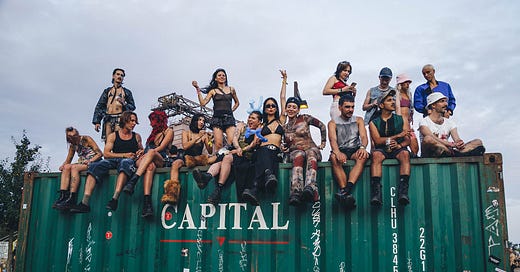


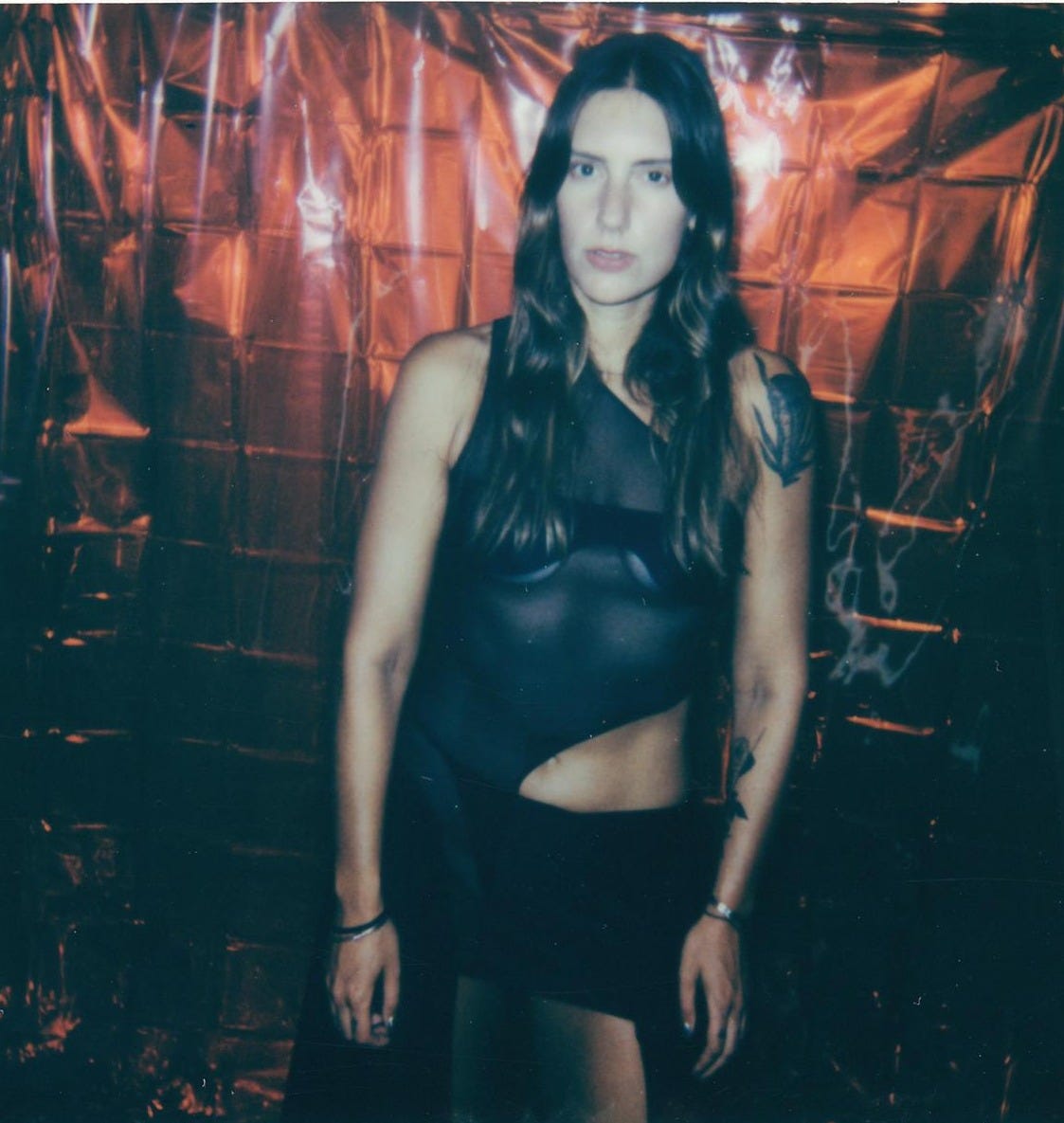
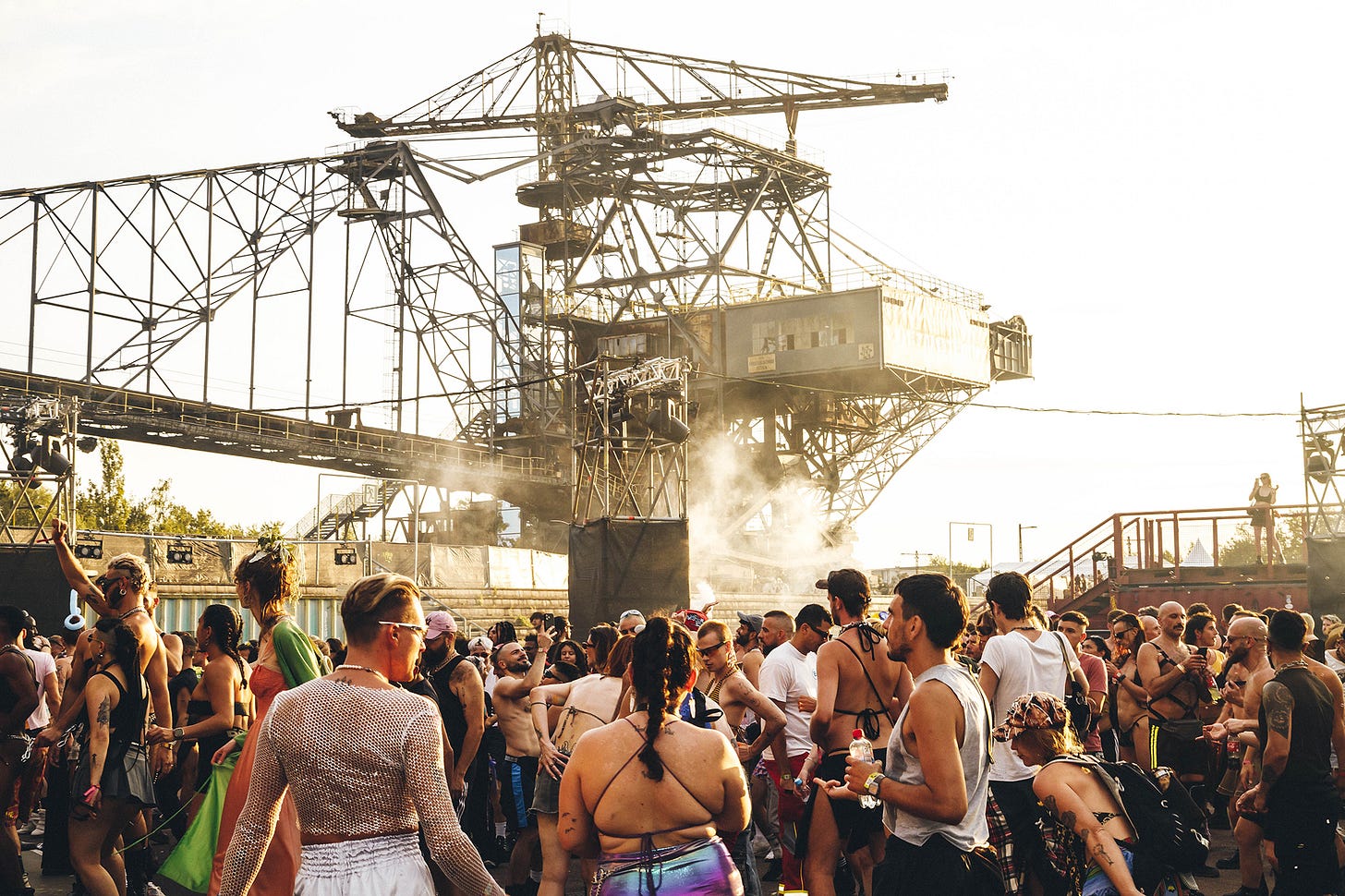
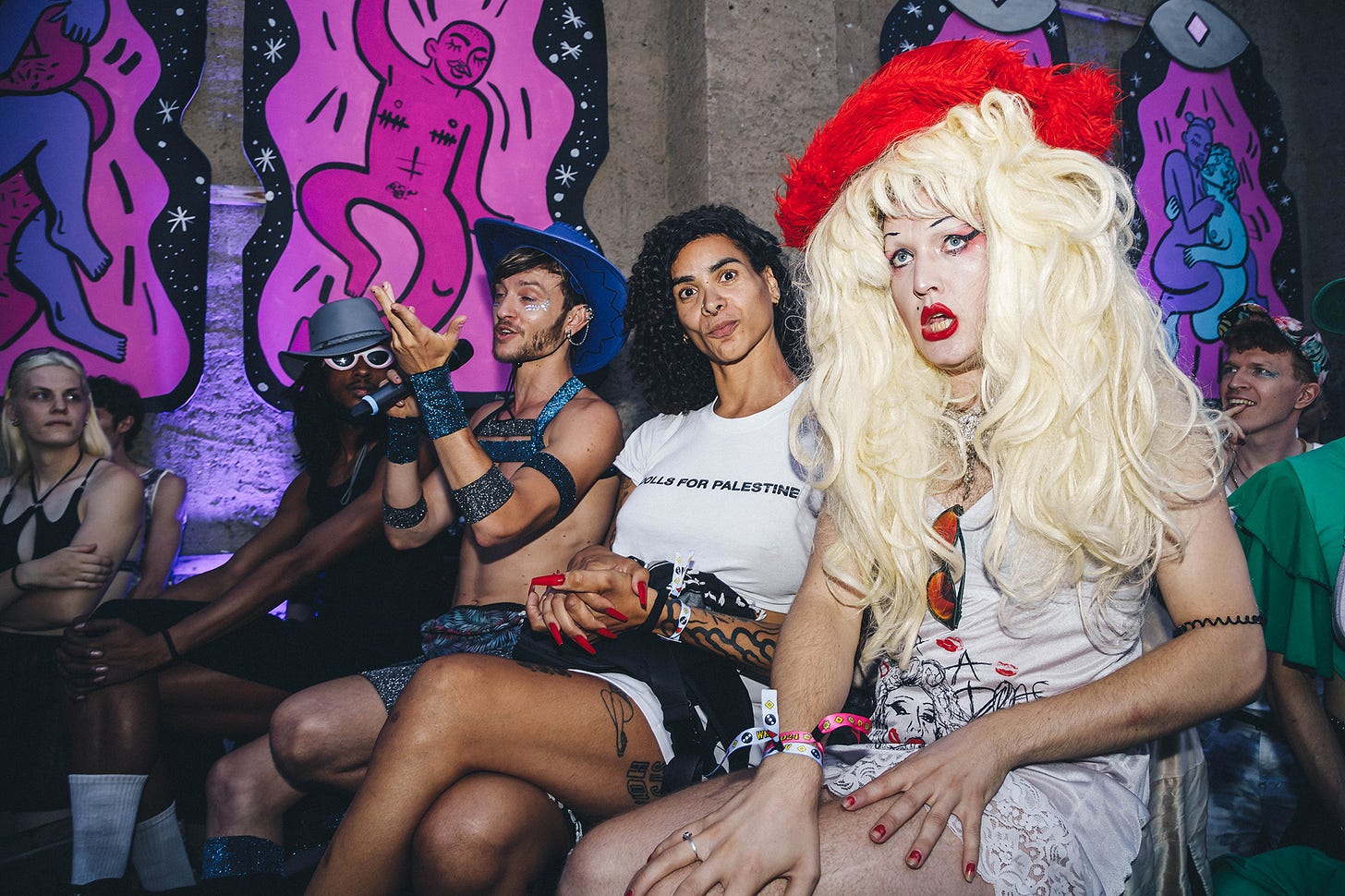

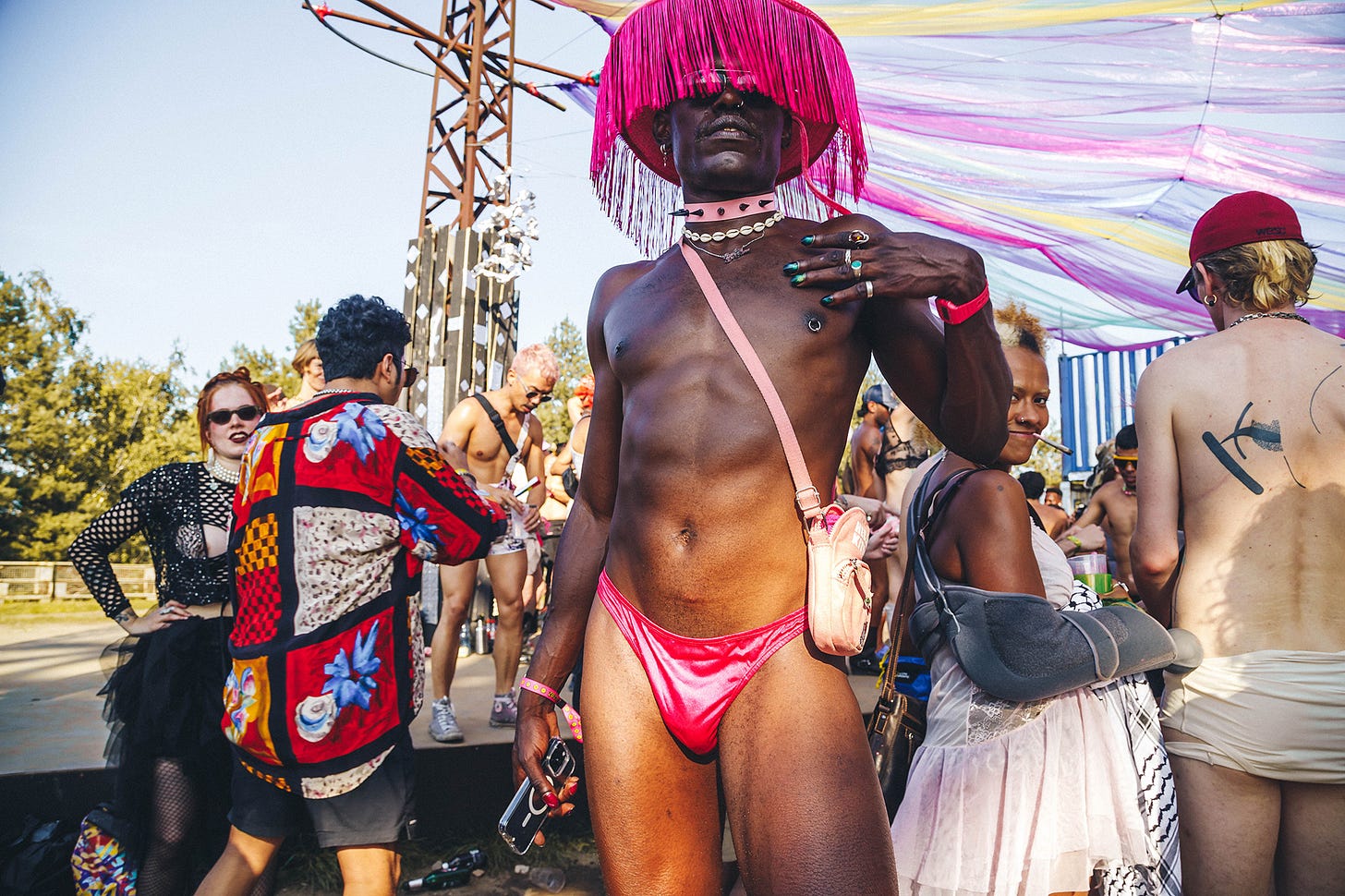
Bravo 👏